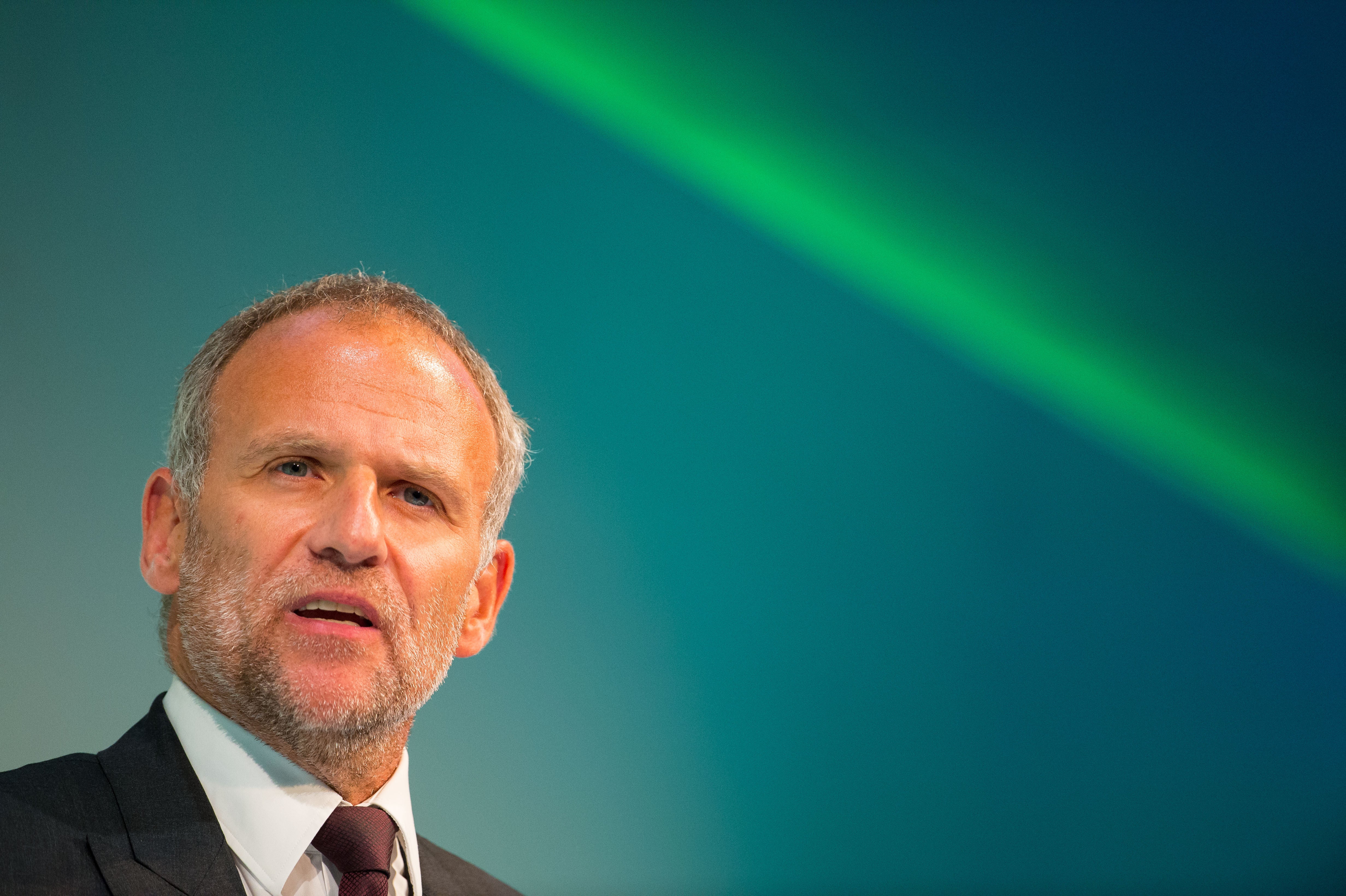PM appoints former Tesco boss as adviser to help ease supply chain crisis
Sir Dave Lewis will start the new role – based in the Cabinet Office – on Monday.

Your support helps us to tell the story
From reproductive rights to climate change to Big Tech, The Independent is on the ground when the story is developing. Whether it's investigating the financials of Elon Musk's pro-Trump PAC or producing our latest documentary, 'The A Word', which shines a light on the American women fighting for reproductive rights, we know how important it is to parse out the facts from the messaging.
At such a critical moment in US history, we need reporters on the ground. Your donation allows us to keep sending journalists to speak to both sides of the story.
The Independent is trusted by Americans across the entire political spectrum. And unlike many other quality news outlets, we choose not to lock Americans out of our reporting and analysis with paywalls. We believe quality journalism should be available to everyone, paid for by those who can afford it.
Your support makes all the difference.Boris Johnson has appointed former Tesco chief executive Sir Dave Lewis as a supply chain adviser to fix both the immediate crisis facing a number of British industries and prevent future chaos.
Sir Dave, who stepped down from the supermarket giant in September last year after turning around its fortunes following its major accounting scandal, will work with the Prime Minister and the Chancellor of the Duchy of Lancaster Stephen Barclay, as it was revealed around one in six adults in Britain have been unable to buy essential food items in the last fortnight.
Some 17% of adults said they had not been able to purchase such goods because they were not available, according to the Office for National Statistics (ONS).
Almost a quarter (23%) said the same for non-essential food items.
Mr Johnson said: “There are currently global supply issues which we are working with industry to mitigate and Dave brings a wealth of experience which will help us continue to protect our businesses and supply chains.”
No 10 said Sir Dave would work on both immediate improvements and any necessary long-term changes to UK supply chains for goods, and will work with Government officials to quickly resolve acute, short-term issues.
A statement said this would include “both identifying the causes of current blockages and pre-empting potential future ones, and advising on resolutions either through direct Government action or through industry with Government support”.
Sir Dave, who will be based in the Cabinet Office and has been appointed until the end of the year, will also co-chair a new supply chain advisory group and the new industry taskforce.
He starts in the role on Monday.
No 10 said: “Businesses have faced a range of challenges over recent months as they recover from the global pandemic which has impacted supply chains across Europe and around the world.
“The Government has acted quickly to introduce a series of measures to relieve pressure on vital supply chains, including by streamlining the testing process for HGV drivers, creating skills bootcamps to train up HGV drivers, as well as introducing short-term visas for fuel drivers, food haulage drivers and poultry workers to ease pressures facing these supply chains.”
Earlier, Transport Secretary Grant Shapps told Sky News “we’re right at the tail end” of the situation with fuel supply pressures.
He said in “most parts of the country” problems have ended, and that London and the South East are the only two areas “where we’re seeing any continued problems”.
He added that around 3,500 people have applied for provisional HGV licences in the past week.
Meanwhile, footballer Marcus Rashford said some of the food banks he works with have been experiencing shortages.
He told BBC Breakfast: “They’re struggling to do what they love doing because there’s a shortage of food and of course it’s something that we’re going to have to find an answer to, and quickly as well, because you know people are out there and they need the meals and especially going into winter.”
The ONS analysed responses from 3,326 adults between September 22 and October 3 as part of its Opinions and Lifestyle survey.
It asked about people’s experiences of shortages over the past fortnight.
Overall, 57% said everything they needed had been available to buy.
One in seven (15%) could not buy fuel.
Six in 10 respondents said their food shopping experience had been different to usual – 43% said there was less variety, and 14% had to go to more shops to get what they needed.
A fifth said items they needed were not available but they could find a replacement, with a further fifth saying they could not find a replacement.
Adults also reported waiting longer for prescriptions (13%) or having to go to more pharmacies to find what they needed (4%).